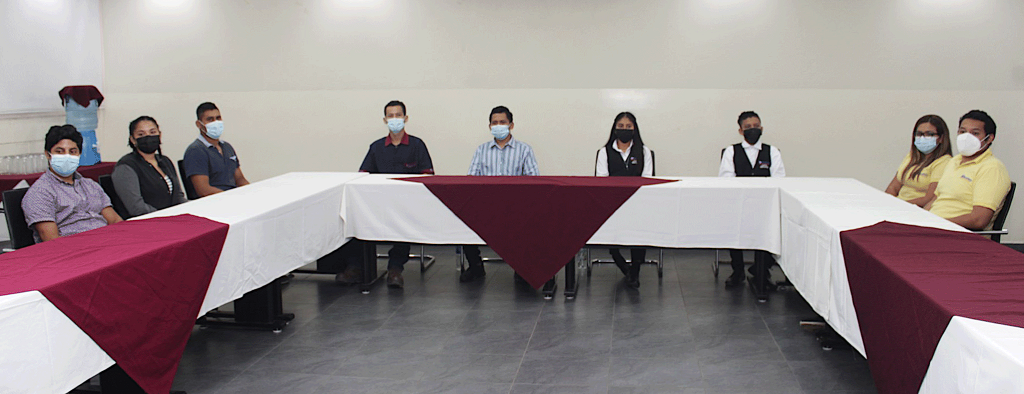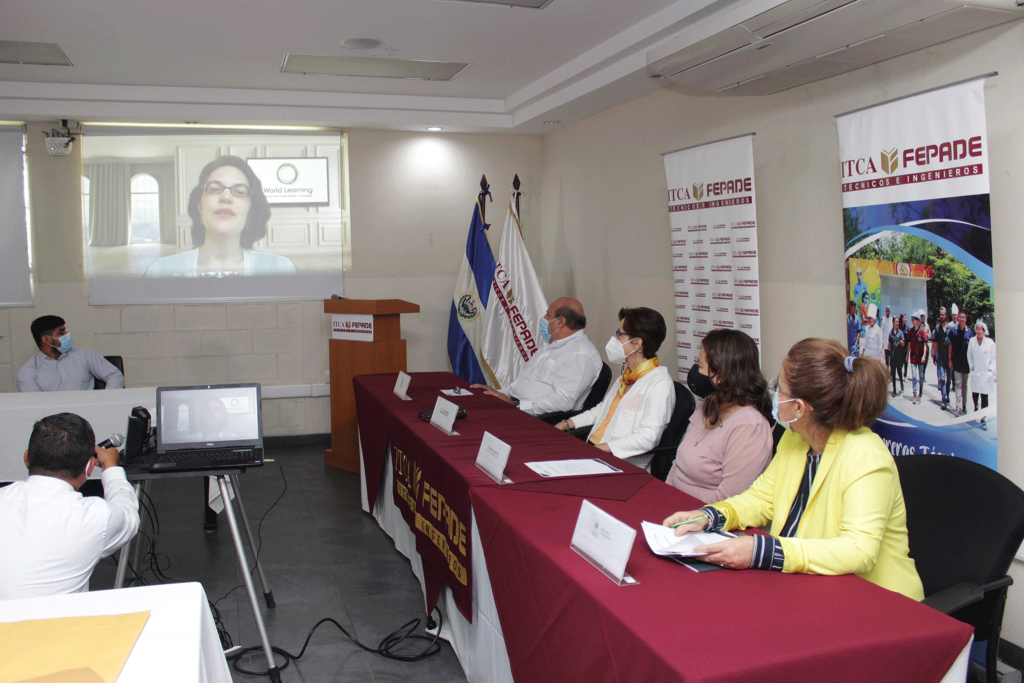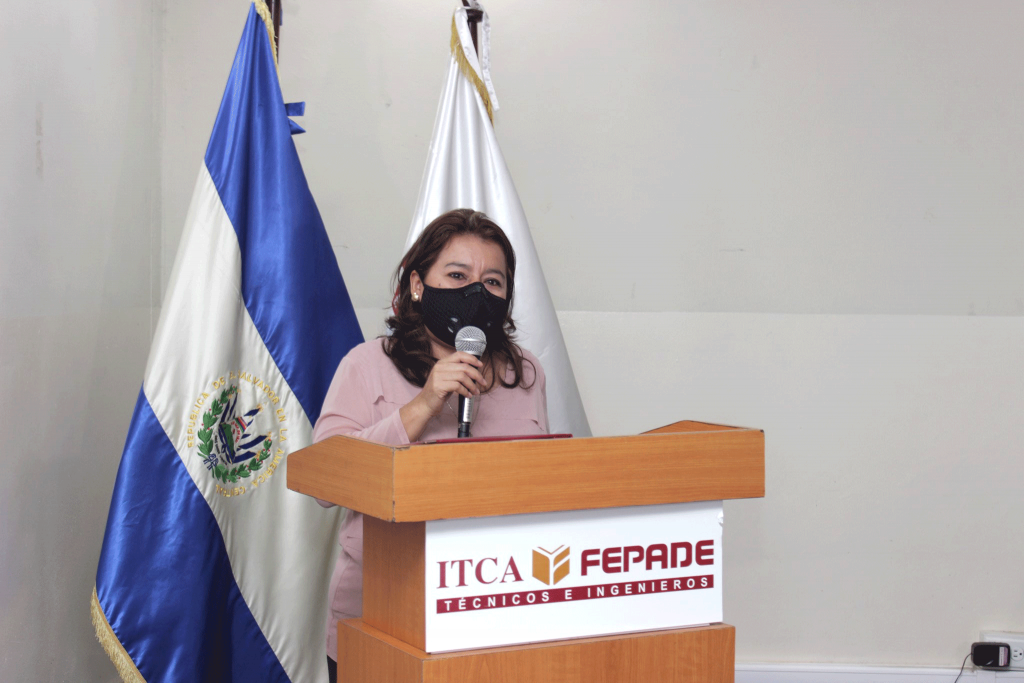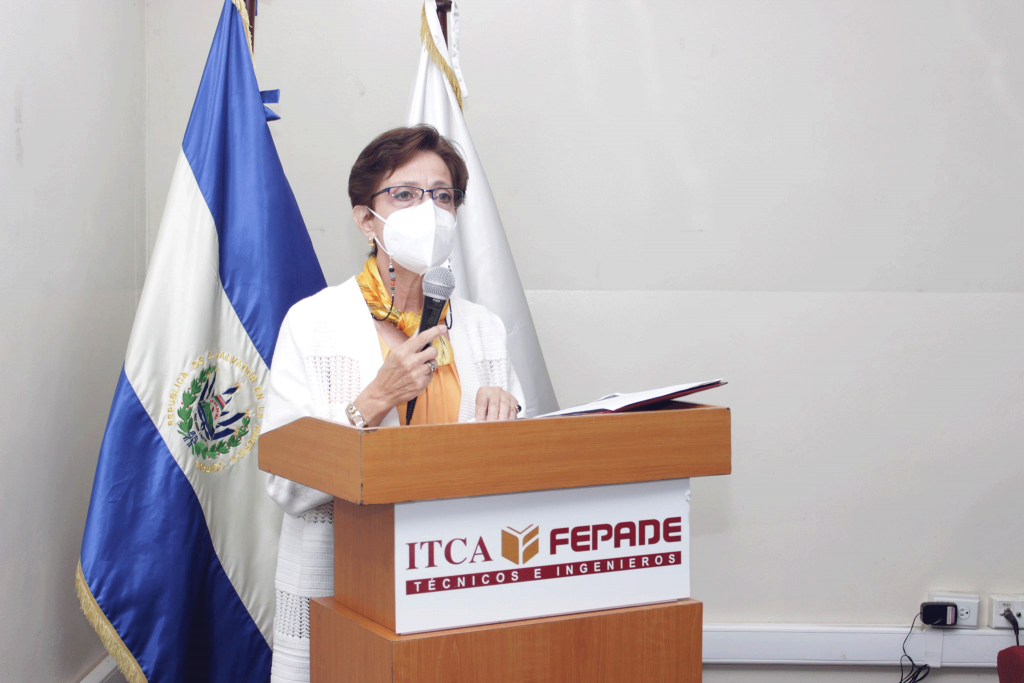-
What We Do
- WHERE WE WORK
-
About Us
 Welcome Message from Carol Jenkins
Welcome Message from Carol JenkinsFor more than 90 years, World Learning has equipped individuals and institutions to address the world’s most pressing problems. We believe that, working together with our partners, we can change this world for the better.
On my travels, I’ve had the opportunity to meet with many of those who have joined us in this mission. In Baghdad, we’ve trained more than 2,300 Iraqi youth who are already giving back at home. In London, our partners in the TAAP Initiative strongly believe that we are all responsible to practice inclusion. And in Vermont, our Experiment in International Living and School for International Training participants prove every day that they have the tools and the determination to change the world.
Please join us in our pursuit of a more peaceful and just world.
- Get Involved
Media Center > Story
Youth Discuss the Future of Education and Employment in El Salvador
July 26, 2021

Youth in El Salvador face a multitude of challenges in accessing education and training opportunities and entering the workforce. In June 2021, World Learning and partner ITCA-FEPADE, a Salvadoran educational institution, held a series of focus groups with more than 90 youth from across the country to learn more about their experiences in education and employment. Titled “New opportunities in the face of current reality,” (report in Spanish) the events offered an opportunity for young people to contribute their perspectives on the challenges facing youth as well as potential solutions.
“This effort at youth outreach is the first step in developing a plan to help young people achieve their academic and professional goals,” says Catherine Honeyman, World Learning’s senior youth workforce specialist. “To do that, we need to know what obstacles they are facing and the solutions they propose to overcome them.”
The consultations included in-person discussions with 64 youth in three of El Salvador’s departments, Santa Ana, San Miguel, and San Salvador. World Learning and ITCA-FEPADE also gathered the perspectives of 34 additional youth via a survey on ITCA’s Facebook platforms. In addition, youth also had the opportunity to interact directly with representatives from the El Salvador Ministry of Education, Science, and Technology, the Salvadoran Industry Association, and two other private sector companies.
Most participants were between the ages of 18–30 and came from a variety of educational backgrounds. The focus groups aimed to identify participants’ experiences with the education system; obstacles they have faced in education or the job market; future support that would help them continue their studies, find a job, or start their own business; and their experience with migration.

Among the main challenges identified by participants were high crime rates, economic difficulties, distance to training or educational centers, limited academic opportunities in residential areas, lack of professional guidance, and scarce job opportunities.
One youth, Yuvini, remarked, “Education needs to reach the more distant and excluded parts of our country.” Other young people agreed, noting that simply traveling to get to school has been a major obstacle for them.
Respondents outside of major cities said there are few options for either work or study near them, so they would need to move or travel to pursue these opportunities.
“I am from a rural area, and that makes it difficult for me to work,” Juan explained.
Respondents noted that in addition to a shortage of jobs, many openings also require specific technical skills and work experience. This means that even young people who have completed degree or training programs may still have trouble finding jobs. Youth, like Daniel, mentioned the need for more practical and affordable training options.

“The improvements our education system needs are [reducing] the costs of higher education and having time to do practical exercises like learning-by-doing,” he said.
In addition, youth remarked that studying is costly and part-time or flexible work schedules are rare. This presents significant challenges for young people who need to continue working while enrolled in an academic or training program.
“I would like to work so that I can continue studying,” said Vanesa.
Those interested in starting a business said they face a lack of access to financing opportunities, such as lines of credit, to cover startup costs.
Because of these challenges, many respondents indicated that they had considered moving elsewhere within the last six months to find better opportunities. Eighty percent of respondents from Santa Ana and Santa Tecla said they have thought about relocating. In comparison, 70 percent of respondents from San Miguel said they have already migrated and returned to El Salvador, where they found it difficult to prove the learning and experience they acquired while out of the country.
“I have thought about migrating to be able to improve my life,” said Cesar, adding, “Being able to give our family a better future is impeded by the economy.”
The youth also offered suggestions for improving and expanding academic and professional training, including online options, help youth find jobs, and encourage entrepreneurship. The most common request was for increased financial support to help cover schooling costs, which was mentioned as the top priority by 25 percent of respondents. Another 19 percent recommended improving the safety of schools, 17 percent would like technical training offered through online programs, 16 percent want to see afternoon and weekend training options, and 16 percent also advise increasing psychosocial support for young people.

In addition, most of those consulted agreed that the educational system needs to be modernized and improve communication and accessibility. Their recommendations included updating curricula, investing in new equipment and laboratories, and applying experiential, hands-on methodologies so that students will be better prepared to enter the job market.
“And for good education, we need good instructors who are also honest, and we need access to technology like better internet connections,” José said.
Other suggestions involved developing high school and technical training options for youth in underserved areas, increasing the emphasis on learning to use technology in high school, promoting personal growth in areas like financial literacy and critical thinking, and improving internet access and connectivity. Another important recommendation was to develop partnerships between educational institutions and businesses to help students engage with employers and improve their access to job opportunities.
“The young people who took part in these focus groups provided essential insight into the lived experiences of youth in El Salvador,” says Honeyman. “They have valuable ideas to offer on how to improve education and employment prospects for themselves and their peers.”
Using the information gathered from these discussions and surveys, ITCA-FEPADE and World Learning designed a project concept to improve psychosocial support and career guidance for youth while connecting them directly with a network of companies in an effort to increase the hiring of young people from disadvantaged backgrounds. The project would leverage new opportunities arising as the world begins to emerge from the COVID-19 pandemic to expand academic and employment prospects for El Salvador’s youth.





